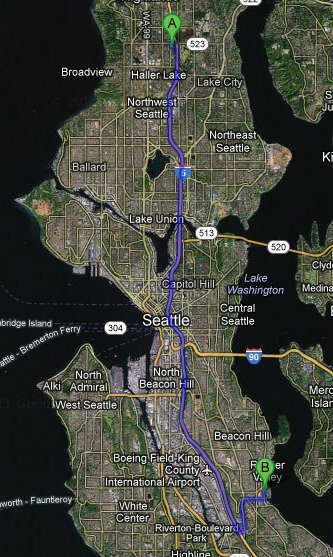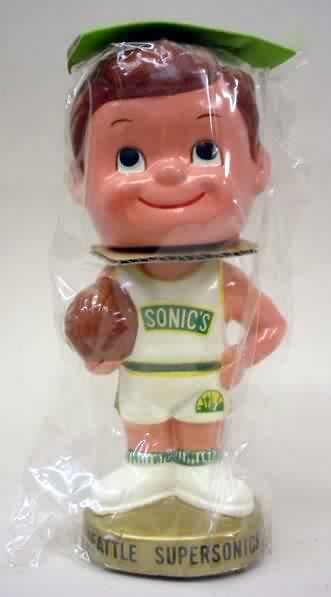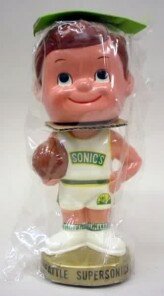
Geographically, athletically, and dad’s-yacht-havingly, it would be tough to find two Seattle schools further apart than Lakeside and Rainier Beach, but the two will contest the same prize tonight: The Metro League Boys Basketball Championship.
At private Lakeside, with its collegiate-style campus on the northern edge of the city, tuition is $27,250 per year, 100 percent of students go to college, and they accept only one-quarter of their applicants.
At public Rainier Beach in the extreme southeast corner of Seattle, the median household income is $26,291 per year, the school was cited in 2011 as one of the 50 lowest-achieving in the state, and while the school can hold 1,200 students, fewer than 500 are enrolled.
This polarity is reversed when you talk basketball: Lakeside hasn’t won a city hoops title since 1991, while Rainier Beach has won eight just since since 2000.
If there’s anything the two schools have in common, it’s that their names are lies: Lakeside is not beside a lake. Rainier Beach is, but behold the “beach” that’s a few hundred yards from the school…. Let’s just say that Kauai is not formulating an action plan to handle this competition.
Lakeside and Beach played for the Metro League basketball championship 22 years ago and Lakeside came away with an upset win, the school’s first and only basketball crown. Since, basketball has not been one of the school’s “core competencies,” to put it in terms your average Lakeside grad — that is, current corporate executive — would understand. (I kid, Lakeside grads! But, seriously, hire me.)
I attended a Lakeside/Rainier Beach game three years ago, and Lakeside — despite the loud and spittle-expressing rooting of billionaire superfan Steve Ballmer — lost by 47 points. I did note at the time, however, that Lakeside played hard and stuck to the game plan of young coach Tavio Hobson.
Three seasons later, Hobson is the Metro League coach of the year. His Lakeside team still plays tough and disciplined basketball, but now they have talent. Guard Tremaine Isabell is one of the quickest players in the city, a slasher in the Allen Iverson mold. Fellow guards D’Marques Tyson and Matthew Poplawski are decent shooters and reliable ballhandlers, while 6’-8” Anand Rajesh and 7’-0” Peter French provide an inside attack teams must account for. I said this a month ago and I stick by it: Lakeside could win state.
Beach could, too — in fact they are the runaway favorites to do so. Along with the typical Vikings complement of speedy, fierce, skilled guards, Beach has talented 6’-7” wing Shaqquan Aaron, the best junior in the state according to ESPN, and possessor of scholarship offers from collegiate basketball powers from coast to coast. Aaron at times struggles to find his place in the Beach offense, but is unstoppable in the open court. Expect at least two thunderous dunks off of steals with Aaron on the floor.
The question for Lakeside will be: Who do we have who can match Aaron’s height and athleticism? And the answer will be — as it would for every other high school team in the state and most college squads — nobody. Lakeside will need to limit Aaron’s chances in the open floor and keep him away from the basket to have a chance of winning.
If you believe that a victory in this game would mean more to upstart Lakeside than to long-dominant Rainier Beach, then maybe the Lions are worth an upset pick. I’m not so sure, though. Rainier Beach makes winning this title a point of pride — the Vikings are 8-3 in the title game since 2000.
Both teams, I expect, will play their hearts out, and the schools’ small but vocal fan bases will be rooting like crazy. Come on out to Garfield High tonight: the game’s scheduled for 8 p.m.



